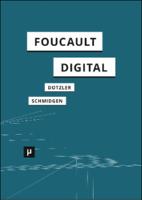Foucault, digital
Author(s)
Dotzler, Bernhard J.
Schmidgen, Henning
Language
GermanAbstract
Mitte der 1960er Jahre hat Michel Foucault die Methode der „Diskursanalyse“ in die Geistes- und Sozialwissenschaften eingeführt. Besonders in der Archäologie des Wissens hat er dafür plädiert, die Geschichte des Wissens und der Wissenschaften zum Gegenstand diskursanalytischer Untersuchungen zu machen. Über ein halbes Jahrhundert später ist im Bereich der Informatik ein zunehmendes Interesse an der Diskursanalyse zu verzeichnen. In der Regel spielt Foucault dabei aber keine Rolle. Fern von jeder Archäologie setzen auch die Digital Humanities vermehrt auf die Analyse von historischen und gegenwärtigen Diskursen. Angesichts dieser Konjunkturen ist es an der Zeit, die Archäologie des Wissens neu zu lesen. Denn schon 1968 behauptete der französische Historiker Emmanuel Le Roy Ladurie „Der zukünftige Historiker wird Programmierer sein, oder er wird nicht sein.“ Ein Jahr später gibt Foucault mit seinem Buch auf eben diese Herausforderung eine ebenso informierte wie nuancierte Antwort. Diese Antwort ist in ihrer Aktualität und Relevanz erst noch zu entdecken.
Keywords
Foucault; Digitalisierung; Wissenschaftsgeschichte; Digital Humanities; DiskursanalyseDOI
10.14619/1983ISBN
9783957961990, 9783957961983, 9783957961990Publisher
meson pressPublisher website
https://meson.press/Publication date and place
Lüneburg, 2022Imprint
meson pressSeries
Digital Cultures, 9Classification
Media studies
Philosophy of science
Philosophy


 Download
Download Web Shop
Web Shop